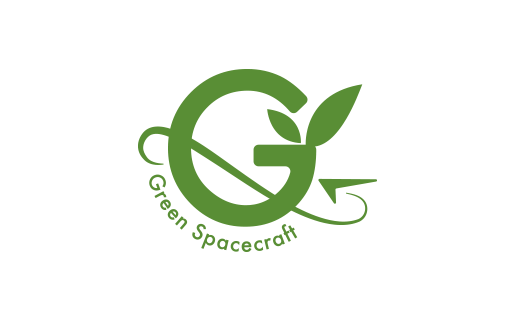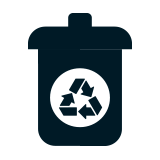Sustainability
Aiming for a Sustainable Space Business
As a leading company in the satellite business, Axelspace is dedicated to upholding the responsibility to both Earth and space environments. The self-initiated Green Spacecraft Standard outlines guidelines intended to
reduce the environmental impact linked with satellite mass production and space debris generation from launch to the end of operations. Through proactive sustainability efforts, Axelspace aspires to position itself as a trailblazing company in space conservation.

From development to disposal (de-orbit).
Comprehensive sustainability throughout
the satellite lifecycle.
The Green Spacecraft Standard, introduced by
Axelspace, aims to promote sustainability
within the space industry. This innovative
framework encompasses comprehensive guidelines
spanning from the design and manufacturing on
Earth to operational phases in space, and
ultimately, disposal after mission completion.
Future satellite developments by Axelspace
will adhere to this standard.
Additionally,
Axelspace is dedicated to fostering
sustainability throughout the entire space
industry by encouraging widespread adoption of
the Green Spacecraft Standard among other
space business operators.
-
Sustainable Manufacturing
Every organization involved in the satellite manufacturing process complies with the “Guidelines” which aim to minimize the environmental burden in the entire manufacturing process, including procurement and transportation.

-
Collision Avoidance
In-orbit operations to avoid a collision with foreign objects must be performed to reduce the collision probability to a sufficiently safe level.

-
Secure Disposal after EOL
After terminating the mission operation, the satellite must be deorbited within a predetermined period of time with a sufficiently high success rate.
* Satellites in Low Earth Orbit (LEO) should lower the altitude to enter the atmosphere.
-
Safe Re-entry
Material selection and structural design must be carefully performed to ensure that the risk of residue reaching the ground is at a sufficiently safe level at the time of re-entry to the atmosphere for disposal.

-
Contribution to Establishment and Dissemination of International Standards
Space Sustainability Rating (SSR) is a sustainability assessment system for space business operators mainly established by Europe, in which Japan has been actively pursuing involvement.
Axelspace proactively contributes to the establishment of effective rating indicators and their dissemination to the industry.
(Axelspace supported SSR activities as a beta tester.)

Rapid De-orbit
~ Last Mission of a Low
Earth Orbit Satellite ~
D-SAIL is a deorbit device developed by
Axelspace in cooperation with SAKASE ADTECH
CO., LTD. When activated, it deploys a large
membrane surface, causing drag resistance that
acts as a brake to the satellite's orbital
motion in Low Earth Orbit with thin
atmospheric conditions. This enables the
satellite to rapidly re-enter the atmosphere
(de-orbit) and prevents it from becoming space
debris after operation.
D-SAIL has
been selected as one of the demonstration
themes of Japan Aerospace Exploration Agency
(JAXA) satellite program called “RApid
Innovative Payload Demonstration SatellitE-4
(RAISE-4)”, and is scheduled for in-orbit
demonstration in the near future. Since the
launch of "PYXIS" in March 2024, this
mechanism has been included as a standard
component in the general-purpose bus systems
developed by our group.




